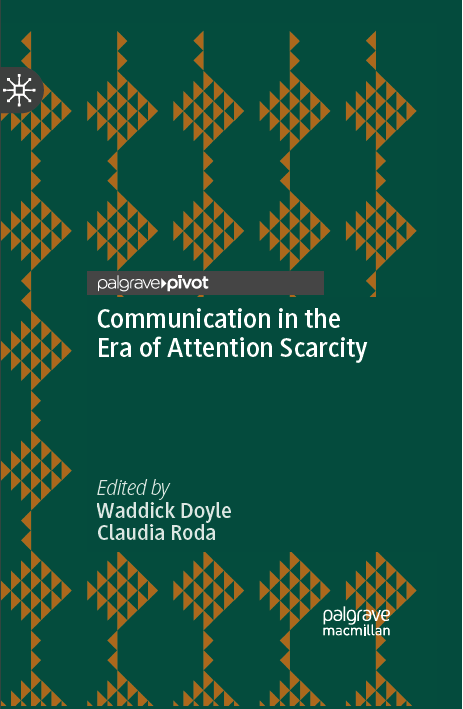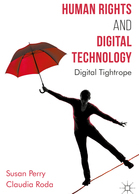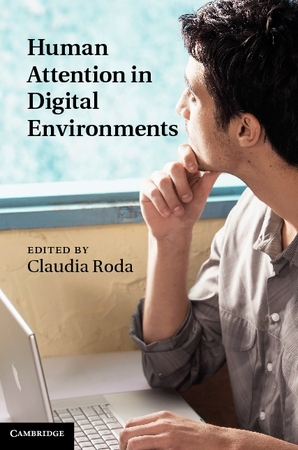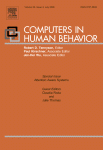
Home |
Claudia Roda is Professor of Computer Science, director of the MSc in Human Rights and Data Science![]() , and the co-founder of the Working Group on Human Rights and Digital Technology at The American University of Paris
, and the co-founder of the Working Group on Human Rights and Digital Technology at The American University of Paris ![]() , FR. Professor Roda is a member of the Partnership on AI's European Steering Committee and a former member of the International Association of Privacy Professionals' Research Advisory Board. She holds, with Professor Susan Perry, the UNESCO Chair in Artificial Intelligence and Human Rights.
, FR. Professor Roda is a member of the Partnership on AI's European Steering Committee and a former member of the International Association of Privacy Professionals' Research Advisory Board. She holds, with Professor Susan Perry, the UNESCO Chair in Artificial Intelligence and Human Rights.
Professor Roda’s research, which has been widely published and sponsored by several organizations including the European Commission and the Andrew Mellon foundation, focuses on the impact of digital technology on human behaviour and social structure. Professor Roda has explored theoretical and applied models for attention computing and her current research evolves from her earlier work on the design, implementation, and validation of multi-agent systems supporting cognitive and social processes for learning and collaboration. In 2007 she received the AUP's Board of Trustee Award for Outstanding Research and Publications, and in 2021 the Innovation in Interdisciplinary Study Award. In 2023 she received the AUP's Student Government Association's award for outstanding teaching. In 2025 she was awarded the UNESCO–Uzbekistan Beruniy Prize for Scientific Research on the Ethics of Artificial Intelligence.
After a bachelor degree in Computer Science from the University of Pisa, she obtained a Master and PhD from Queen Mary University of London, UK where she also worked at the first EU-sponsored research project on multi-agent systems. She continued her research in this field as a Senior Research Fellow at INSEAD ![]() in the Centre for Advanced Learning Technologies (CALT). In 1997 she joined the American University of Paris where she also teaches courses in programming languages, human computer interaction, and human rights and digital technology. She was Director of the Division of Arts and Science from 2008 to 2011, Director of the collaboration between The American University of Paris and The New School (NY, USA) from 2010 to 2013, and Dean from 2015 to 2018.
in the Centre for Advanced Learning Technologies (CALT). In 1997 she joined the American University of Paris where she also teaches courses in programming languages, human computer interaction, and human rights and digital technology. She was Director of the Division of Arts and Science from 2008 to 2011, Director of the collaboration between The American University of Paris and The New School (NY, USA) from 2010 to 2013, and Dean from 2015 to 2018.
- #6 best seller in Computer Science according to Library Journal, Best Sellers: Computer Science, February 2 2012
- #30 in best selling academic ebooks for January 2012 according to YBT Library Services
- Interview with CBC's Nora Young for Spark June 2012
- Interview BBC-World The Forum: about interruptions - 12.1.2015
- CHOICE: Current Reviews for Academic Libraries. 49.3 (Nov. 2011): p547. Extract:
"For those developing digital systems, human attention and methods for maximizing human attention are vital. Attention-aware systems are designed to try to overcome attention barriers and increase human attentional processes. Here, editor Roda (American Univ. of Paris, France) has carefully assembled a collection of 12 chapters spanning the fields of human-computer interaction, cognitive psychology, and neuroscience. [...] This volume provides an effective overview of the topic, including its theoretical foundations and design considerations. [...] Summing Up: Highly recommended. *** Graduate students and above." D. D. Tritt, University of South Carolina Aiken - Perception December 2015 44: 1436-1439. Extract:
"Given that we are decreasingly limited by the availability of information in these digital environments, the nature of our interaction with these interfaces is now increasingly shaped by our own cognitive architecture. In Human Attention in Digital Environments, Claudia Roda brings together a collection of work seeking to understand how the human attentional system may limit and shape these interactions and also how digital systems can best be designed in order to support and align with the way that users interact with them. With the extremely rapid pace of change across society in the way that we interact with technology, this couldn’t be more timely in terms of our well-being at leisure and in the workplace and for the effectiveness of many professions on which we rely. Furthermore, with the current emphasis on interdisciplinary research and research with real impact, it may be keenly read by academics looking for ideas for their own future research. Different chapters approach the area from the perspectives of traditional cognitive psychology, neuroscience, systems design, computational modelling, human computer interaction and education. [...] this does of course present the reader with a challenge since they are unlikely to be up to speed in the terminology, methods, and theories in all these areas. [...] The flip side of this is that readers in their respective fields may well feel inspired to explore some further reading in subject areas new to them. Several sections of the book also serve as a summary and literature review of research in human attention with a particular focus on the processing of visual information. The opening chapter by Roda is a general introduction for the reader on a diverse range of theories, phenomena, and subclassifications in the field of visual attention as well as a review of how these may operate in digital contexts. [...] In terms of teaching, anyone looking for illustrations of how visual perception and cognitive psychology theory can be applied to real-world context is likely to find several ideas in this book, [...] In summary, it is an important and timely challenge to bridge the gap between what we know about attention from experimental psychology to our modern interactions in digital environments. This book takes an interdisciplinary approach showing how this can be done in a range of specific topics." Christina Howard, Nottingham Trent University, Nottingham, UK - The Psychologist; Sep2011, Vol. 24 Issue 9, p679-679, 1/4p Extract:
"Computers and interactive systems are everywhere – homes, schools, work … This book offers a broad yet focused overview of the psychological concepts of attention. It further points out the key elements that interactive system design needs. The book captures the reader’s attention throughout, with essays, both technical and theoretical, from psychology and computing experts. It starts by revealing the psychological concepts behind human attention, moving gracefully to software tools and applications that employ human attention research to enhance human attention. [...] Furthermore, internet lovers will be intrigued by the introduction of attention aware systems and how they can be used in practice for exploiting contextualised attention metadata. [...] this book provides a nice, neat and enjoyable journey to the fields of Psychology and Human Computer Interaction, and convinces the reader for the need to focus further on human attention research in relation to interactive systems design. " Genovefa Kefalidou Lancaster University - Journal of Technology in Human Services Volume 29, Issue 4, December 2011, pp.303-308
Extract:
"Those of us interested in learning many of the latest developments of how information systems interact with users and how that knowledge can help to communicate more effectively should read this book. [...] Human attention in digital environments meets its goals and exceeds my personal expectations. [...]This book is an excellent primer for the uninitiated. It contains extensive bibliographies and excepionally well documented theories. [...] Human Attention in Digital Environments is a significant contribution towards advancing an understanding of an important area of study and research." - Computing Reviews Online, June 9 2011, by Brad Reid Extract:
" This book attempts to bridge the divide between research in cognitive psychology and useful application in human-computer interaction. System designers will find the materials worthwhile. [...] Many developments are unfolding in applied attention theory, and this collection will stimulate the reader. " - "An illuminating and usually comprehensive contextualisation of attention in the field of computer system design. This book has the potential to change attention researchers' perspective on what is important in their field." --Anne Hillstrom, Department of Psychology, University of Portsmouth
- "This book offers a timely and well-conceived response to a growing interest in how attention affects computer interaction and the problems this poses for designing systems, making a valuable, well-grounded contribution to this burgeoning area." -- Sharon Wood, Senior Lecturer in Computer Science & Artificial Intelligence, University of Sussex
|
|
News and Events
CFP: first symposium on the Principles for Ethical Use of Digital Testimonies of Victims and Witnesses of Mass Violence, June 22-24 2026, at The American University of Paris, Paris, France
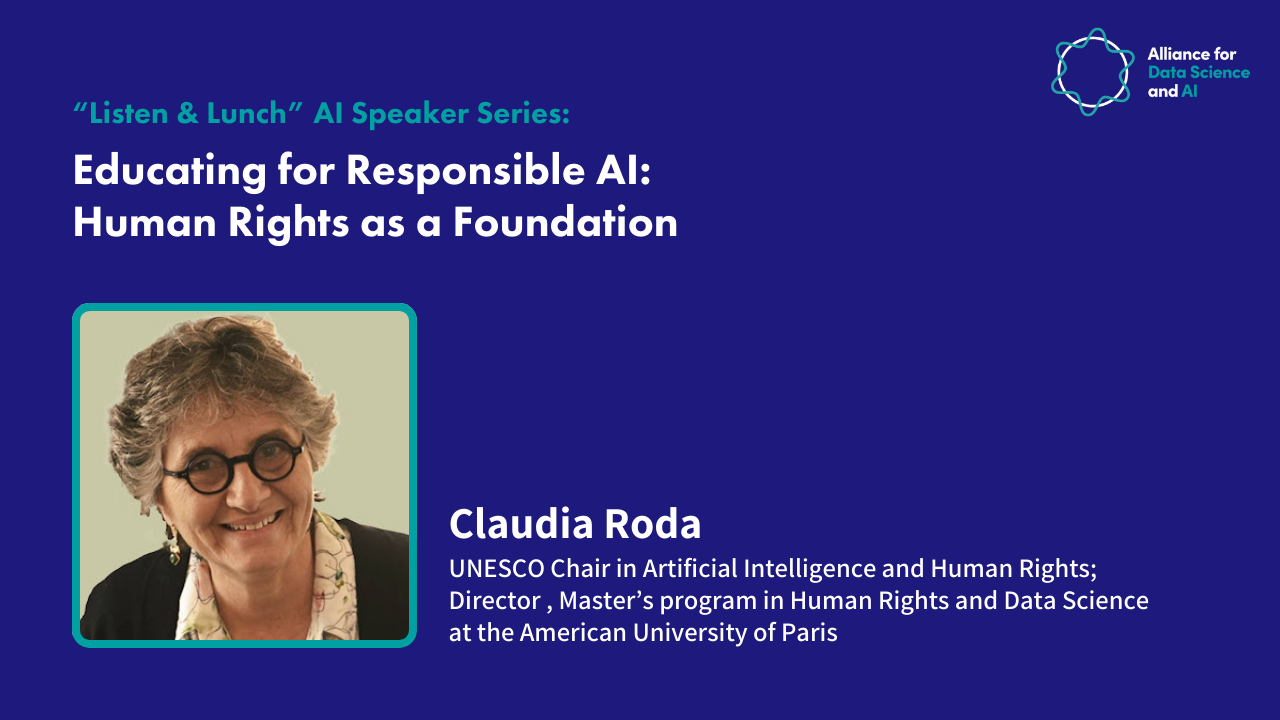 Educating for Responsible AI: Human Rights as a Foundation, webinar ADSA, January 23 2026
Educating for Responsible AI: Human Rights as a Foundation, webinar ADSA, January 23 2026
 Speaker High-Level Dialogue- Innovation as Survival, RightsX SUMMIT, Organized by the Office of the High Commissioner in Human Rights. Geneva, December 10-11 2025
Speaker High-Level Dialogue- Innovation as Survival, RightsX SUMMIT, Organized by the Office of the High Commissioner in Human Rights. Geneva, December 10-11 2025
 Laureate of inaugural UNESCO–Uzbekistan Beruniy Prize for Scientific Research on the Ethics of Artificial Intelligence (AI), Samarkand, Uzbekistan November 2025
Laureate of inaugural UNESCO–Uzbekistan Beruniy Prize for Scientific Research on the Ethics of Artificial Intelligence (AI), Samarkand, Uzbekistan November 2025
Speaker: Navigate: Digital Policy Leadership Retreat 24th June: Public Policy Leaders-Only Day At Harvard's Berkman Klein Center, Cambridge, MA June 2025
(c) 2013-2025 Claudia Roda
